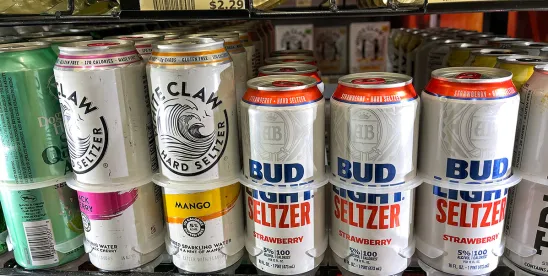The final quarter of the year is the alcohol industry’s busiest period, accounting for approximately 70% of annual business. Many holiday-themed seasonal products are beginning to make their way to market, and it is important to remember that these products may have additional regulatory considerations and hurdles.
The Alcohol and Tobacco Tax and Trade Bureau (TTB) publishes a list of allowable revisions to approved labels – that is, the changes that can be made to a product with an existing certificate of label approval (COLA) without necessitating a new label approval. Notably, however, seasonal products have special allowances. Generally, any nonmandatory label information, such as a graphic, would require a new COLA to be added to a label. Yet, in accordance with Allowable Revision #28, so long as that graphic is holiday and/or seasonally themed, it can be added, deleted, or changed without a new COLA. For example, adding a smiley face to a label would require a new COLA, but adding a candy cane would not.
Even though the candy cane would not require a new COLA, it is important to remember that any additions must not conflict with or qualify the mandatory information, and they must comply with all existing regulations and avoid all prohibited practices. For example, “Happy Valentine’s Day!” can be added to a label, but “Dizzy with love on Valentine’s Day” could not be added – with the acquisition of a COLA or without. “Dizzy” or other statements that describe how the contents of the bottle may affect someone would, if added to a distilled spirits label, run afoul of 27 CFR § 5.129 (a)(1), as the term implies a physical or psychological sensation resulting from consuming the distilled spirits. For wines, a similar qualification can be found in 27 CFR § 4.39(h), and for beers, it can be found in 27 CFR § 7.129(a)(1).
After the new seasonal labels have been printed, there are several additional considerations. These include:
- Packaging: There are limitations on whether the alcoholic beverage can be packaged together with a food or point of sale (POS) item.
- Pricing: It is important to consider the price and whether the market will allow a pricing variance from the same alcoholic beverage when not accompanied by POS.
- Separate brand registrations and price postings where required.
- Special price posting designations, such as a limited availability designation for New York.
Label and packaging compliance is an area that is routinely investigated by the TTB and state regulators. Regulators conduct these compliance checks by visiting retail locations and verifying that the labels on the products conform to state and federal labeling requirements. When a label is not in compliance, the industry member may face penalties and will need to address the regulators’ concerns and correct the label(s). Maintaining compliance with TTB and state regulations helps safeguard existing licenses and helps avoid disruptions within supply chains.





 />i
/>i

